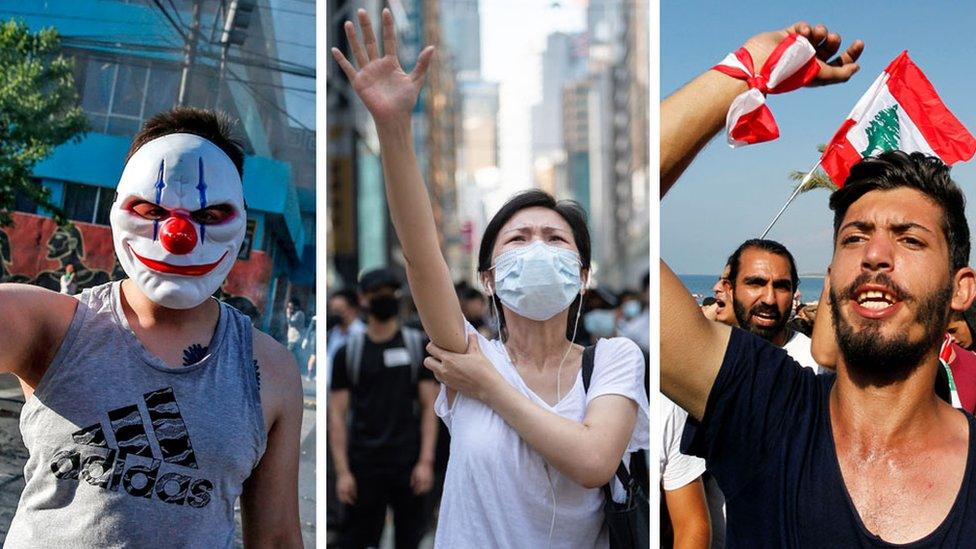Bolivia crisis: What's next after Evo Morales' resignation?
- Published
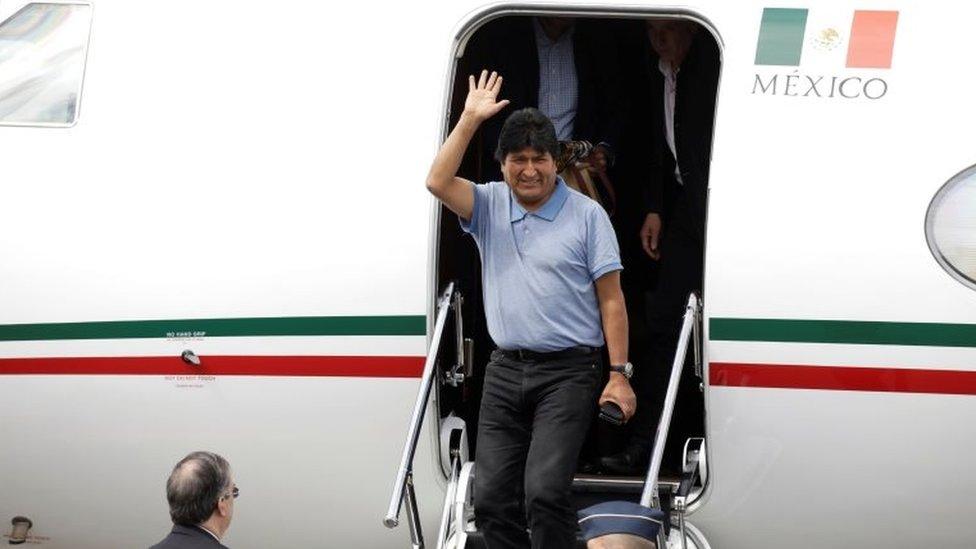
After Evo Morales left for Mexico, there was a power vacuum
In the space of three weeks Bolivia has gone from having one of the longest-serving presidents in the region to having a little-known senator as interim leader. Following contested presidential elections that triggered three weeks of street protests, President Evo Morales resigned and sought asylum in Mexico, where he denounced what happened as a coup. We take a closer look at what may come next.
Who is in charge?
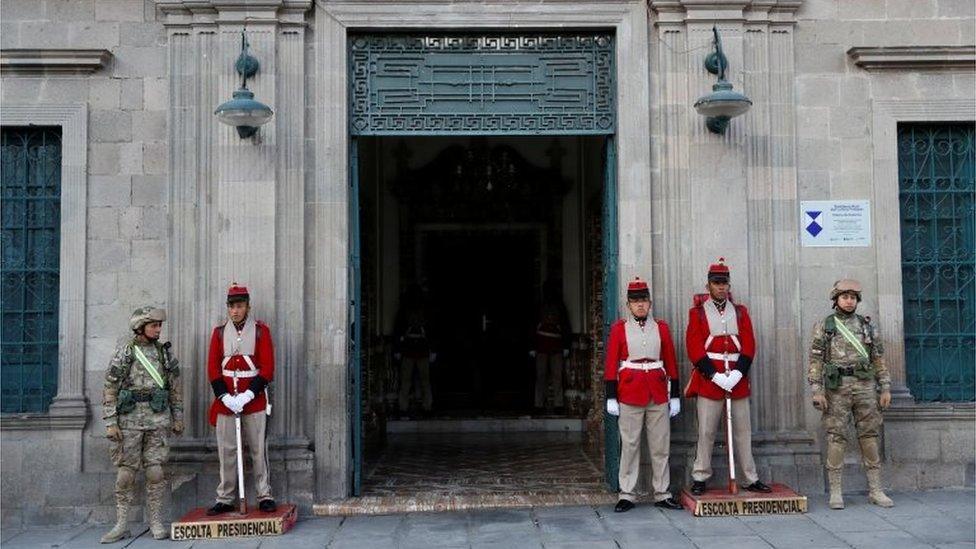
Jeanine Áñez has been holding meetings at the old presidential palace
After the resignation of Evo Morales on Sunday, it would have fallen to Bolivia's vice-president, Álvaro García Linera, to take over power. But Mr García Linera left the country on the same plane as Mr Morales to seek asylum in Mexico.
Under Bolivia's constitution, next in line would have been the leader of the Senate, Adriana Salvatierra, followed by the leader of the Chamber of Deputies, Víctor Borda, but both resigned, leaving the deputy leader of the Senate, Jeanine Áñez.
Shortly after Mr Morales' resignation, Ms Áñez, who is from the opposition Democratic Union party, tearfully announced that she was willing to act as interim president "to put an end to the vandalism and the deaths".
Watch Ms Áñez's tearful announcement
In a Senate session on Tuesday, which was boycotted by members of Mr Morales' party, she assumed interim leadership amid loud applause from opposition senators.
Mr Morales called it "the sneakiest and most nefarious coup in history", pointing to the fact that due to his party's boycott not enough senators had been present to approve the move.
But Bolivia's constitutional court released a statement endorsing Ms Áñez and explaining that in the case of the presidency being left vacant, congressional approval was not needed for her to assume power.
What happens next?
Under Bolivia's constitution, Ms Áñez now has 90 days to call fresh elections. The interim leader said she was committed to holding new polls and taking "all measures necessary to pacify the country".
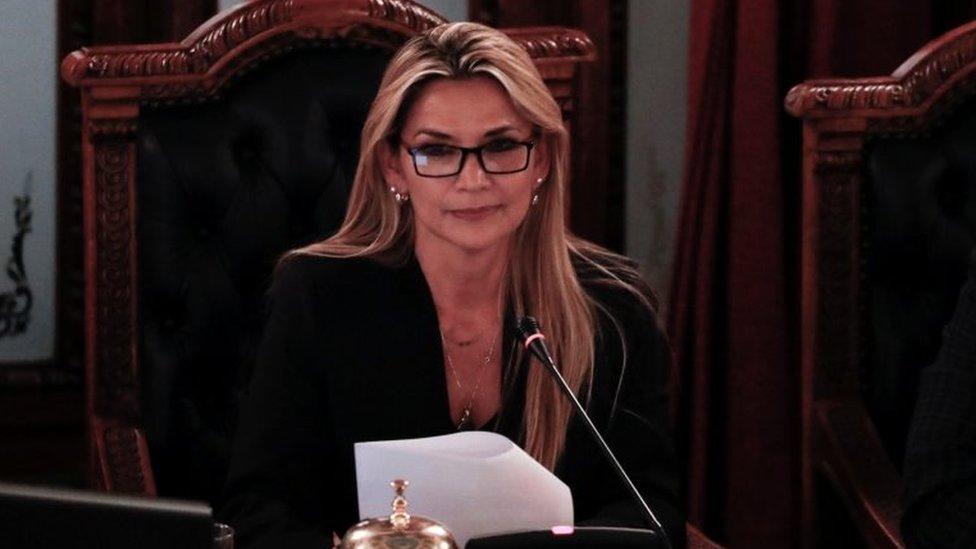
Jeanine Áñez has said she would hold "transparent elections soon"
She will have to name a new transition cabinet to govern the country until a new president is elected.
Ms Áñez has said that she wants to speed up the process of calling new elections so a new president is in place by 22 January, the day Mr Morales' term would have expired had he not resigned.
Is calm likely to return to the streets?
Bolivia remains deeply polarised and the way Ms Áñez has become interim leader is unlikely to settle matters. Clashes broke out immediately after Tuesday's senate session with security forces firing tear gas at protesters.
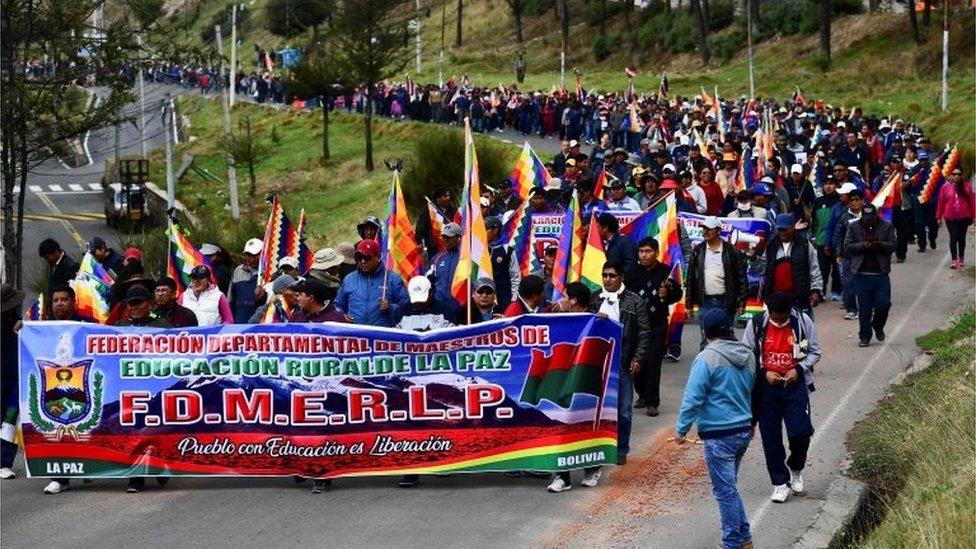
Supporters of Evo Morales have set off on a protest march from El Alto to La Paz
Opposition leader Luis Fernando Camacho, who was one of the most vocal opponents of Mr Morales, told his supporters to dismantle the barricades they had set up and stop their protests.
But supporters of Mr Morales are unlikely to accept the departure from office of their president quietly. Coca growers, a key group backing Mr Morales, said they would protest until he returned to power.
It is not yet clear what Mr Morales himself is planning. Speaking as he landed in Mexico City, he said that he would "continue the struggle" but he has not specified whether he is going to do so from Mexico or whether he plans to return to Bolivia.
- Published12 November 2019
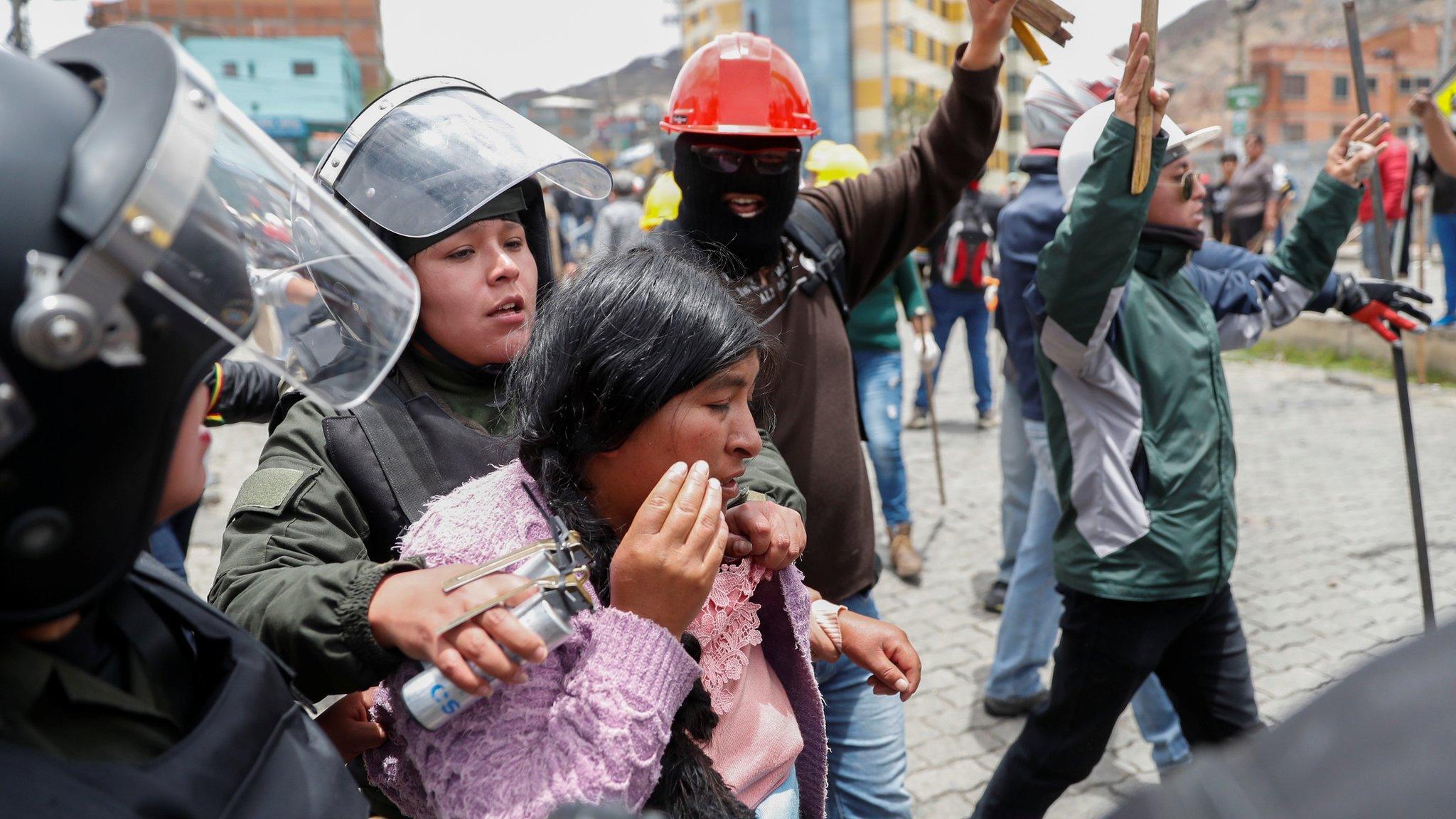
- Published10 November 2019
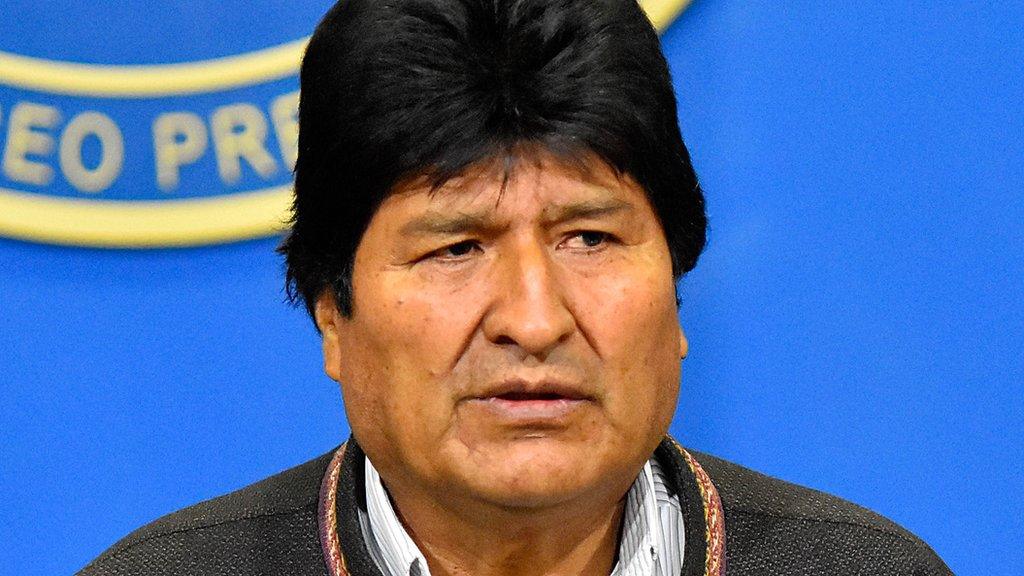
- Published11 November 2019
